London, 1995
The woman was there again, haunting him, when the phone rang.
“Avram here.”
“David?” came the voice at the other end of the line, peppered with transatlantic static. “It’s Ron.”
An executive producer of the project so far as the end crawl was concerned, Ron Stein was really just a watchdog ABC had tapped to watch over expenditures, in particular those racked up by David Avram over in England. David had come to dread the twice-weekly conversation, wherein he was called upon to account for every cent and pence.
“Yes, Ron, what is it?” David answered wearily. His gaze drifted across the room, as it always did, pulled by the gravitational force of the blown-up black-and-white photo tacked on the far wall. In the half-moon of white at the photo’s center were positioned four young men in white shirts, black vests and ties, two guitars, a bass, and a drum kit, framed by the dark crescent of the ceiling above and the range of heads below. In the foreground, with bobbed blonde hair, leather jacket, and knapsack, stood the woman, caught in profile, blurred in the instant of turning back towards the camera, or else turning back from the camera towards the stage. She wore a strange Mona Lisa half-smile, and seemed to mock David with her mystery.
“Don’t worry, David, I’m not calling to bust your balls. Not today, anyway. I just got some news off the wire that I thought you’d be interested to hear.”
“Okay,” David replied, his tone noncommittal. He didn’t consider Stein the best judge of what he might or might not find interesting, but as Stein held the purse strings, there wasn’t much he could do about it. “Shoot.”
“Get this,” Ron continued through static. “Your boys are putting on a little show.”
“Boys? What boys?”
“The Fab Four,” Ron answered. “Or what’s left of them, anyway. The surviving three have scheduled a press conference at the London Hilton, for tomorrow.”
David found he had trouble swallowing, as though he’d forgotten the trick sometime in the last few seconds.
“Press conference?” he repeated. “But . . . they’ve said they wouldn’t promote the project. Only the private interviews, and no public appearances.”
“Hey, pally, I can read the contracts as well as you can, but I’m telling you that they’re going to be at the London Hilton tomorrow. We’ve confirmed with their people, and it’s a go.”
“What . . . ” David began, finally remembering the trick to swallowing. “What, what are they talking about?” He paused, and then added, “At the press conference, what are they talking about?”
“That’s just the thing,” Ron answered. “Nobody’s got any idea. How’s that for a kick in the drawers. Now, I think you see where I’m going with this, right? Have you still got that film crew on the leash —the one that you used for those pickup shots over on Apple Road?”
“Abbey Road,” David corrected automatically, then nodded. It took a moment to remember that his nod wasn’t likely to translate down the transatlantic line, and he added, “Yeah, yes, they’re here in town. I should be able to get them together.”
“Great,” Ron said. “So here’s the plan. We’ve wrangled a press pass for you and the crew—should be waiting for you at the gig. You get your ass over there tomorrow at noon, get the whole shindig on film, and maybe we’ve got a new ending to this story, right? You with me?”
David nodded again.
“Yes,” he said finally out loud. “I’m with you.”
“Great,” Ron said. “Okay, go get ’em, man. Let me know as soon as you’ve got something golden, you got it?”
“Got it.”
David set the handset back down on the cradle, and rubbed the heels of his palms into his squeezed-shut eyes. When he opened them again, he looked up to see the woman, standing there beneath the half-moon of light, laughing at him in grainy black and white.
∞
David Avram had been working on the Anthology project for ABC for about a month when he’d first noticed the woman. Brought in on the project first as a second unit director, on the basis of a little documentary he’d done about the last days of Elvis while still in film school, David quickly began to feel that he was out of his depth. His senior thesis project, The Face of Elvis, had been shot on video, on a shoestring budget, and really only worked as a result of some of the extraordinary interviews that David had lucked into in the course of shooting in Memphis. He’d had no idea when he sat down to interview the barber that the man had briefly been a member of the “Memphis Mafia,” or that the man would be so forthcoming with theretofore undisclosed scandals.
Now, traveling all over the United States, England, and the rest of Europe, David was sure they’d picked the wrong man for the job. The woman, and her mystery, were really only symptoms of a larger disease.
The Anthology project was originally intended to be a bit of fluff, coproduced by ABC in the States and ITV in the UK, timed to coincide with the release of a new series of compilation CDs. Months and hundred of hours of footage later, it was decided that the Anthology would be released as a six-hour miniseries in the fall of ’95, the week of the CDs’ release. To make matters worse, they’d so far overshot the mark of six hours that the Anthology was scheduled to be released in an expanded format on video the following year, ten hours in all.
Ten hours. Threading his way through the mountains of stacked beta cassettes and film canisters in his temporary London offices, David was sure he could cut together ten hours from the detritus he’d dropped on the floor in the last week alone. Ten hours. They could do a hundred and not blink.
The problem was, so far as David was concerned, that the piece lacked a center, a focus around which the rest of the project could orbit. Due to contracts and agreements signed with the surviving band members and various estates and family members, the Anthology was hardly the insightful and hard-hitting exposé David had imagined when he’d first interviewed for the position. Instead, the rough cut of the footage so far soft-pedaled its way through the decade or so of the band’s career, showcasing the albums and concerts while glossing over anything meaty.
Just one nugget would do, David was convinced, just one gristly morsel. The woman, he was now convinced, could well be it.
He’d first caught sight of her in a photo of the band’s early days in Hamburg in 1961: the four Liverpudlians, just steps away from their teddy boy roots, in leather jackets and pants, their hair only now shading down from greased-up pompadours to the bangs-forward style they’d make famous. She’d been partially visible at the edge of the stage: blonde bobbed hairdo, leather jacket, and backpack. In her knee-high boots and black miniskirt, she’d looked like something out of a dark mirror Star Trek episode, which put her, David had to admit, somewhat ahead of the curve so far as fashion was concerned. He’d not thought much of her, assuming she was just another of their hundreds of adoring German fans who’d come to know and love them in the Reeperbahn.
A few weeks later, while editing together some still shots and film clips of the Cavern Club from 1962, he’d noticed her again. At first he thought it a coincidence, just another similar-looking woman in the same sort of outfit, but after blowing up the two images and comparing them side by side, he was sure the two were of the same woman. Was she a German who’d followed the boys back to England, or an Englishwoman who’d followed them to Germany in the first place? He had photos of all the boys’ girlfriends at that time, and none of them looked a bit like her. It was a mystery, but a minor one at best.
A month went by, and David was sent to England to film some framing sequences at the site of the old Apple offices on Savile Row. To familiarize himself with the location, in an attempt to show the passage of years from then to now, he’d watched the footage of the rooftop concert over and over again before heading out for the shoot. It was on the fourth viewing that he caught sight of a woman with short blonde hair in a leather jacket, knee-high boots, and miniskirt standing on the roof of the building adjacent Number 3 Savile Row, watching the performance with an amused half-smile on her face. The same woman, looking as though she hadn’t aged a day, in precisely the same clothes and hair.
David felt himself becoming obsessed, but there was nothing else for it. Returning to the offices after wrapping up the location shoot, he dug out every bit of archives film, video, kinescope, and still photography he’d amassed over the previous year, hunting down the mystery woman. He found her again sitting a few feet from the drum kit in the color footage of the “Our World” satellite broadcast of June 25, 1967, incongruous amongst the baroque flower power of beads and spangles in her black leather and miniskirt. There she was again in black and white in photos of the tour performance in Hong Kong, where the band’s manager had hired a session musician to sit in for their ailing drummer, left home with tonsillitis back in England. And again in the stands at Candlestick Park in 1966, at the last performance of the last tour the band would take.
Time and again he found the woman at the sidelines of key points of the band’s history, always looking precisely the same, as though it was the world around her that changed while she remained immutable and static. Same half-smile, same bobbed hair, same clothes, boots, and backpack. David took to carrying a photo of her, a blown-up screen capture from the “Our World” broadcast, the best likeness he’d found, whenever he went out to pick up an interview. He fidgeted his way through each interview, every old girlfriend, classmate, and cousin, waiting until that moment when the camera would be shut off and he could produce the photo, but none of them would admit ever having seen her before, or to knowing why she haunted the periphery of the band’s career for so long.
Now, months later, work on the project drawing to a close, David had begun to feel that the mystery woman in the photo was the linchpin to the project, the one question around which the Anthology would crystallize. But no answer had surfaced, and he began to suspect that one never would.
∞
The next day, film crew in tow and press passes in hand, David arrived early at the large hall of the London Hilton, a strange mix of giddy anticipation and dread gripping his chest. He found a seat near the back, after instructing the crew where to position the two cameras, and waited for the hall to fill.
A few minutes before noon, nearly every seat taken and the back and sides of the hall crowded with cameras and sound equipment, a gentleman in a finely tailored business suit entered through a door at the front of the hall and stepped up to the podium. To one side of the podium was a table and four chairs, behind a banister set up as a barricade separating the table from the audience. Four chairs? David could hardly guess.
The business suit began with some preparatory remarks, introducing himself as a press agent whose name David recognized and indicating that he’d been hired by the former bandmates to arrange the press conference. After fielding a few questions from the assembled reporters, none of which he was at liberty to answer, the suit indicated the door behind him with a wave of his hand.
“Ladies and gentlemen of the press,” he announced, his tone becoming that of a circus ringleader. “May I present, in no particular order—” Ripples of laughter ran through the crowd. “—Paul McCartney . . . ”
The man himself came through the door, looking just as he had in the interview footage the Anthology’s first unit director had shot the fall before, appearing young for his age, smiling, still handsome, still a presence.
Flashes snapped, questions were shouted out, all but drowned out by the applause from the audience. Applause, from reporters no less. This was something David hadn’t seen before. He glanced around him at the sparsely populated seats at the rear of the hall, the bulk of the reporters having squeezed as far forward as possible, all of them eager for a closer look, some seeming as though they’d go into hysterics if they could only touch the hem of his garment. The boys, after all of these years, still held some sway over people.
"George Harrison . . ." the press agent finally continued, having to shout over the applause and shouted questions, the room refusing to calm.
The second of the survivors entered the hall, dressed casually in denim jacket and jeans, gray-streaked hair brushed back and his face clean shaven under wide sunglasses, grinning like a Buddha at the tumult of the room. David glanced to his side, a movement catching his eye. He was about to turn back to the stage and await along with the rest of the throng the appearance of the third, the last survivor of the original three, when he was frozen in place, his gaze riveted.
One row up from him, a few seats down, sat the woman. Blonde bob, leather jacket, knee-high boots, and all. The mystery woman, not having aged a day, looking as though she’d stepped out from the photo in his pocket, crossing the distance between the lacy swirls of 1967 and the present day without missing a beat.
The press agent was introducing the third survivor, but David couldn’t bring himself to notice. He was entranced, transfixed. Pushing off his chair onto shaky legs, he worked his way down the row towards the woman without collapsing, and took the seat at her side.
The woman, half-smile on her face, glanced over at him, nodded, and turned back to watch the show.
David, struck dumb, could only pull the folded and water-stained photo from his pocket, unfold and smooth it as best he could, and then present it to the woman as his silent question.
She looked down at the photo for a long moment, her smile widening to three-quarters for an instant, and then looked up at David.
“Do my eyes really look that puffy?” she said casually, reaching up to brush her eyelid with an outstretched finger.
David meant to say “No,” or to shake his head, or to ask her any one of a hundred questions, but he only managed to swallow. At least he hadn’t forgotten how again.
“This is really going to be something,” the woman went on, turning her attention back to the stage. “You’re going to want to see this.”
David gaped, trying to work out any kind of rational explanation for the woman’s appearance. It had been more than thirty years since that first photo of her was taken, and she hadn’t aged a day.
“Are you . . . ?” he began, fishing desperately for something coherent to say. “Are you from around here?” he finished, not even sure why he’d asked.
“No,” the woman answered, shaking her head just enough for her short blonde hair to shift, still smiling. “I’m just visiting a few days.”
There was a trace of America in her accent, overlaid with refined British and something else besides.
“Look at them, will you?” she continued, pointing to the three men on the stage with her chin. “You wouldn’t think it’d been so long since they’d been together. They belong together, don’t you think? The whole greater than the sum of its parts?”
David nodded.
“Can you imagine what things would have been like if they’d never gotten together?” the woman went on before David could compose an intelligent response. “If Paul had refused John’s invitation to join the Quarrymen? John on his own would never have made it, just like Paul by himself couldn’t have. It was the alchemical fusion of the two that made them great. Or imagine if Williams hadn’t booked them for Hamburg? It was Hamburg that did it, you know. The crucible that turned their raw talents into skill, and then skill into genius. If they’d stayed in Liverpool the whole time, they’d just have been another skiffle band turned rocker, another lesser light in the brief constellation of the Mersey Beat. And don’t get me started on what would have happened if George Martin hadn’t produced them.”
“Um, yes,” David managed. “Okay.”
“I’ve seen it, you know,” the woman said, eyes fixed on the stage, and the three men smiling for the cameras. “Ten years of genius, changing the musical landscape forever, and then they walked back into the pages of history, their job through. Oh, there’s some variance in the Myriad, here and there, the breakups coming later or earlier, but in most cases the band doesn’t make it much into the seventies before they call it quits. Some lines didn’t even get to hear ‘Abbey Road,’ while in others ‘Mandala’ was never even recorded.”
“Mandala?” David parroted back. He was confused. The woman he’d seen as the answer to the question his film was asking looked to be only another question herself.
“I’m sorry,” the woman answered, glancing over at David and shrugging apologetically. “I’m rambling, I know. I’ve just been such a big Beatles fan my whole life, and this is such a big day for me.”
David’s face screwed up in confusion.
“A big day? Today? Why?”
The woman held a slender finger up to her lips, and David caught sight of light glinting off a wide silver bracelet on her left wrist, the suggestion of a faceted jewel around its curve.
“Shh,” she breathed, nodding her head towards the stage. “Watch and you’ll see.”
The fervor from the audience had mostly died down, and the press agent was handing things over to the three men. McCartney, sitting to the far left of the table, began things, still the consummate showman.
Promising to field questions after their prepared speeches, McCartney spoke briefly about the long history and friendship the three men shared, and of the hard times following the tragic death of their fourth, missing friend in 1980. He spoke about the continued impact of their music on generation after generation of fans, and about the ongoing musical projects the three men pursued individually. He spoke, finally, about the persistent questions about and calls for some kind of reunion of the three, and of their long and stalwart reluctance to pursue the idea.
“It always seemed to us, you know,” McCartney concluded, “that with just the three of us, it wouldn’t be the Beatles; it would just be the three of us making music. There was no way we could ask someone to fill in those shoes, because frankly, who would want to? They were just too big.”
“So we’ve found someone with big feet,” interrupted the next man down.
“Okay, okay, you’ll get your turn,” McCartney answered, miming offense. “Here you go, you bastard, take it.” He pushed his mic away in a mock show of disgust and leaned back, arms across his chest. “Take it away, John, it’s all yours,” he finished with a smile.
“Thank you kindly, Paul,” Lennon answered. “Now, like I was so rudely interrupting, when Pete was killed back in 1980, I figured, well, that’s the end of the Beatles for sure, isn’t it? You can dissolve business partnerships, break up contracts, and piss on each other’s shoes, but so long as everyone’s still around and breathing there’s still a chance, right? But with Pete gone, well, that’s it. Who’s going to want to step into Pete Best’s shoes, right, even if we asked them to? Nobody. And then, last year, we found somebody that was more than willing to, ’cause he already had.”
“Back in the Beatles days,” George Harrison interrupted, leaning into his mic, “Pete came down with tonsillitis or some such right before we had to go on a tour of Holland and Hong Kong. Sick as a dog, really. We wanted to cancel the tour, but Brian Epstein, our manager, wouldn’t have it. He wanted to hire up a session musician and finish out the tour without Pete.”
“We didn’t care much for the idea,” McCartney chimed in, “but in the end we figured we’d pick somebody we knew to sit in, and then maybe it wouldn’t be so bad. So we found this guy, still playing in Liverpool, who we’d known back in Hamburg, when he played with a band called Rory Storm and the Hurricanes. A hell of a nice guy, and probably a better drummer than Pete at that point, if we were honest.”
“Pete didn’t really get grooving as a drummer, I don’t think,” Lennon cut in, “until around the second American tour.”
“Anyway,” Harrison went on, raising an eyebrow at his two former bandmates, tapping his watch and indicating they should move on, “last year I was up in Liverpool visiting relatives when I ran into this guy again. He’s still playing, in a church band or something, but works days as a foreman at the docks. We got to talking, and he invited me around to hear him rehearse, and I just couldn’t believe it. Here was this guy, a dockworker who hadn’t played professionally in what, twenty years, thirty, who can play like no one I’ve heard in years. Later I was talking to Paul about him, and then to John, and one thing led to another . . . ”
“And to another . . . ” Lennon added.
“And here we are,” McCartney said. “And here he is. Ladies and gentleman, may I introduce to you, once again after all of these years, Ritchie Starkey.”
David recognized the man who appeared at the door from archival footage from the 1964 Holland performance. A little more haggard, balding with a beard, he grinned beneath his prominent nose and joined the three Beatles at the table, taking the fourth seat at the end. The four Beatles, David corrected himself. He turned back to the woman at his side to find her climbing to her feet.
She was smiling broader than before, three-quarters shading to full, and heading towards the door.
“Wait!” David shouted, jumping up and rushing after her. “Where are you going?”
“They’re performing together in a month, the four of them, in New York at the Ed Sullivan Theater, and I don’t want to miss it.” Turning away, she hiked up the left sleeve of her jacket, then laid her right hand on the silver bracelet on her arm.
“But . . . ” David answered weakly, and followed after, towards the rear of the hall and the door. “Who are you? What’s your name?”
The woman, moving faster than he, was already at the door. She turned around, and gave him a little wink.
“Roxanne,” she answered, shouldering open the door, letting a bright white light spill into the hall from beyond. “Roxanne Bonaventure.”
She slipped through, the door closing shut behind her. David made it to the door, out of breath, and shoved it open. The brilliant white light beyond was gone, replaced by the pale incandescence of the chandeliers overhead. The woman was also gone.
Later, after a fruitless search of the lobby and grounds for the woman, he returned to the hall, partially to rejoin the film crew, but primarily to retrieve the photo he’d let flutter to the ground beneath the woman’s seat. He picked it up, smoothing out the wrinkles and dusting it off. The woman, half-smile in place and head cocked to one side, listening intently as John, Paul, George, and Pete informed the world that all it really needed was love.
Here, There & Everywhere © 2005 Monkeybrain Inc.





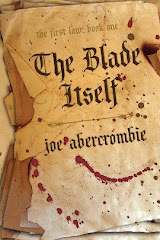.jpg)




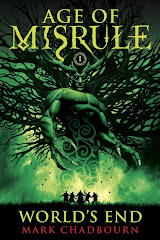.jpg)










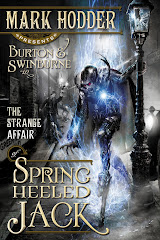


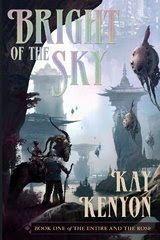.jpeg)
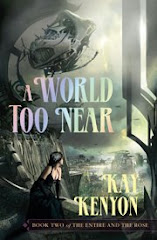.jpg)











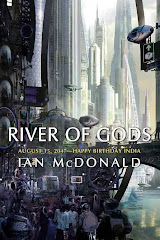.jpg)














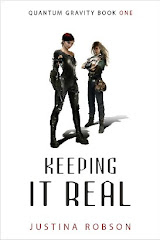.jpg)



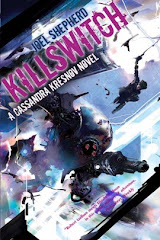.jpg)




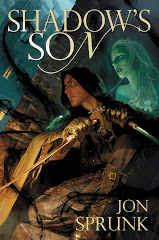

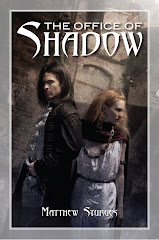







6 comments:
The next time I read a blog, I hope that it doesnt disappoint me as much as this one. I mean, I know it was my choice to read, but I actually thought you have something interesting to say. All I hear is a bunch of whining about something that you could fix if you werent too busy looking for attention.
Click Here
Twittbot.net
Share it Obat nyeri saat buang air kecil dan keluar cairan kuning cey Obat pembengkakan hati wex Obat penghilang bintik bintik putih di wajah noy Obat syaraf kejepit di pinggang belakang wes Obat penghilang ruam merah di wajah akibat lupus wow Obat tukak lambung sey Obat jerawat bernanah dan meradang doy Obat pembengkakan kelenjar getah bening dibawah ketiak moy Obat sakit punggung, perut dan disertai sesak nafas ceng Obat penghancur lemak perut dan paha Thank you...
Would you be interested in exchanging links?
Information
Click Here
Express.yudu.com
There are some interesting points in time in this article but I don’t know if I see all of them center to heart. There is some validity but I will take hold opinion until I look into it further. Good article, thanks and we want more! Added to FeedBurner as well
Thefastdiet.co.uk
Information
Spot on with this write-up, I truly think this website needs much more consideration. I’ll probably be again to read much more, thanks for that info.
Information
Click Here
Visit Web
Oh my goodness! an amazing article dude. Thank you However I am experiencing issue with ur rss. Don’t know why Unable to subscribe to it. Is there anyone getting identical rss problem? Anyone who knows kindly respond. Thnkx
Ignitiondeck.com
Information
Click Here
Visit Web
Post a Comment